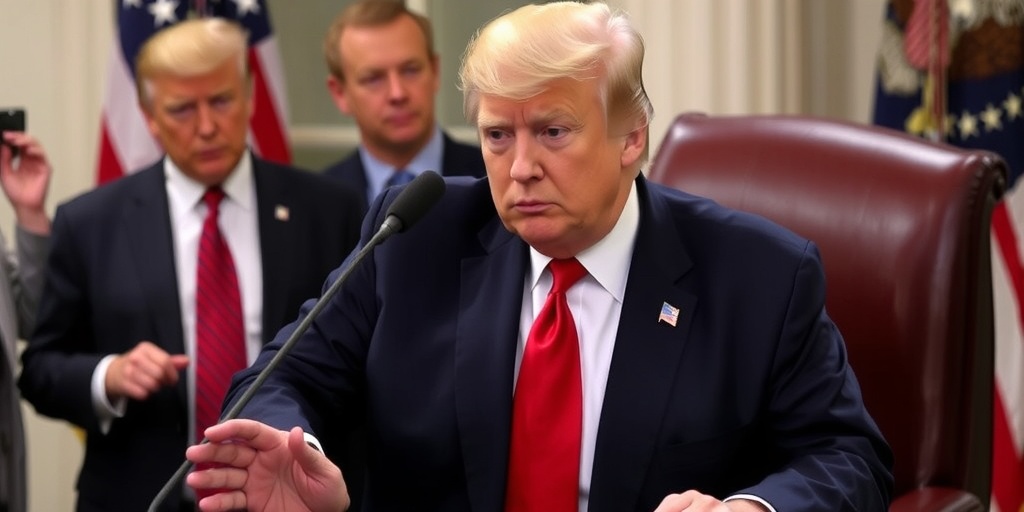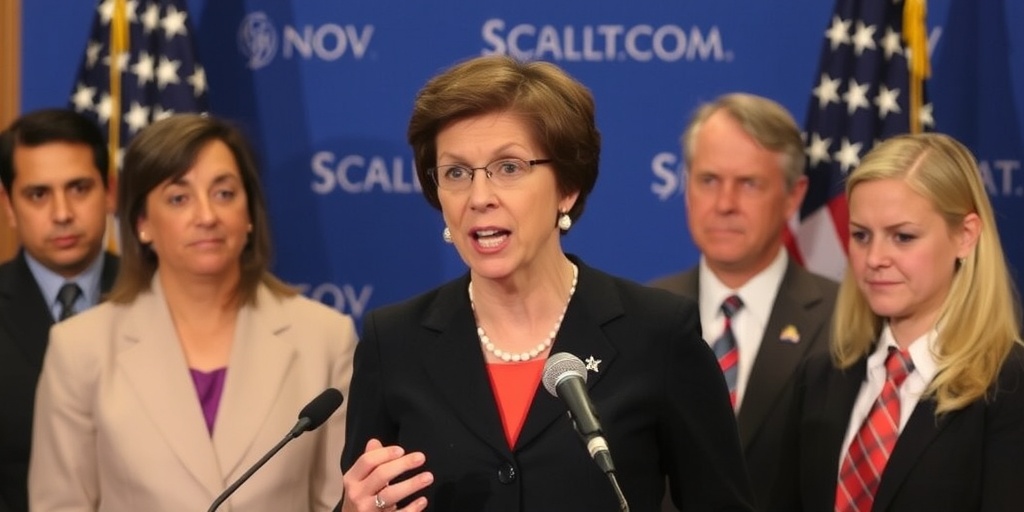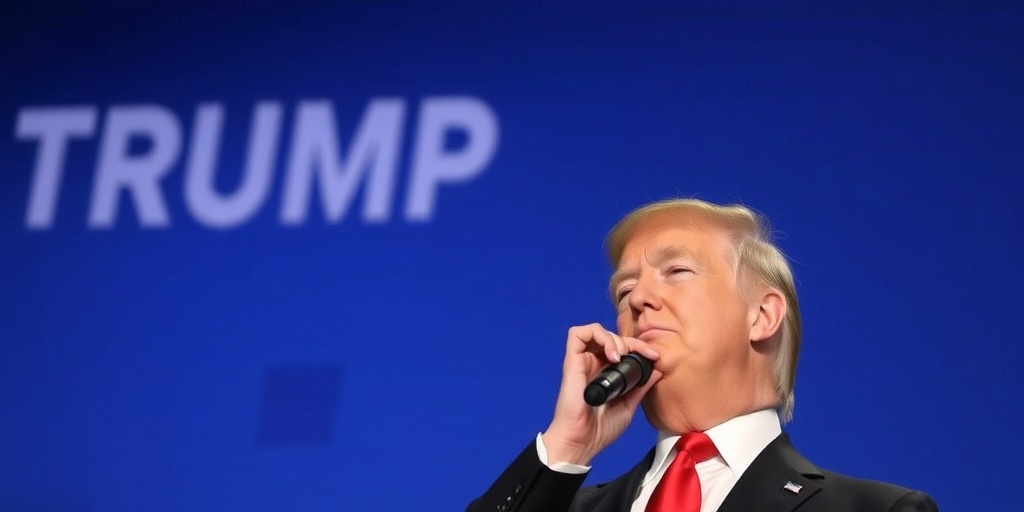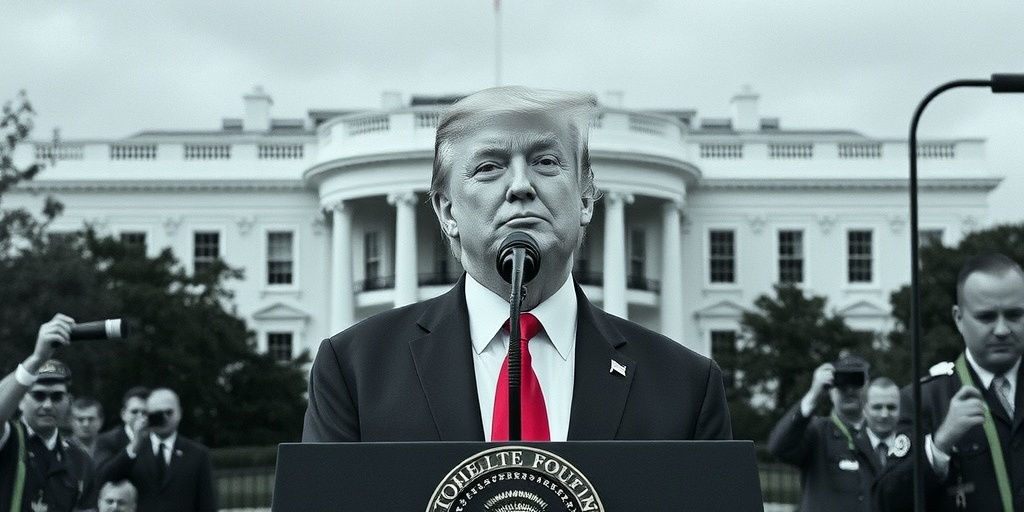Now Reading: Trump Prepares Order to Eliminate Education Department
-
01
Trump Prepares Order to Eliminate Education Department
Trump Prepares Order to Eliminate Education Department

Trump Moves to Dismantle Education Department, Setting Stage for Legal Battles
In a decisive step that could reshape the educational landscape in the United States, President Donald Trump is reportedly preparing to sign an executive order aimed at dismantling the Department of Education. This move, which has never been attempted by a modern president, is expected to lead to significant legal and political challenges, particularly from Congress, as the department was established by an act of Congress in 1979.
According to a government official who wished to remain anonymous, Trump’s order is anticipated to be signed as early as Thursday. The official’s remarks reflect ongoing discussions among Trump’s team regarding the future of the agency, which has been a focal point of controversy in the current administration. Critics argue that such a unilateral action would walk a fine line between the powers of the executive branch and the legislative authority granted to Congress.
No president has successfully closed a federal department without legislative approval, and it is widely recognized that any effort to abolish the Education Department would require Congressional approval. This acknowledgment raises questions about the potential for factional conflicts within the government, particularly as many lawmakers view the department as essential for ensuring educational equity and access to federal funding.
Trump’s administration is already grappling with numerous lawsuits concerning various actions taken since he took office. Legal experts anticipate that any effort to eliminate the Education Department will invite further litigation, potentially delaying or complicating the execution of Trump’s directive.
The implications of Trump’s proposed changes have drawn immediate backlash from educational organizations and advocacy groups. The American Federation of Teachers (AFT) issued a statement on Wednesday expressing its strong opposition to the president’s ambitions. Randi Weingarten, the president of AFT, emphasized the critical role that the Department of Education plays in distributing federal funds aimed at supporting disadvantaged students, students with disabilities, and other vulnerable populations.
Weingarten warned that "any attempt by the Trump administration or Congress to gut these programs would be a grave mistake, and we will fight them tooth and nail." The statement underscores the deep concern among educators and union leaders regarding the potential loss of vital programs and resources that benefit millions of students across the nation.
The announcement of Trump’s executive order coincides with a period of heightened scrutiny surrounding the administration’s policies. Legal observers note that the drafting of the order, which reportedly circulated within Washington, indicates a palpable sense of urgency from the White House regarding the dismantling of what Trump has labeled a “big con job.” Expressing his disdain for the agency on multiple occasions, Trump has articulated a fervent desire not only to reduce its influence but to eliminate it entirely.
Moreover, Secretary of Education Linda McMahon, who was appointed by Trump, has aligned herself with the president’s vision, declaring the mission of her department as its “final mission.” In her initial communication to department staff, she alluded to the strategy for executing Trump’s plans, indicating a readiness to follow through on the administration’s goal of shuttering the agency.
While Trump’s administration touts this initiative as a step towards reducing bureaucracy and promoting local control over education, critics argue that it could have dire consequences for educational access and funding. Removing the federal layer of oversight and assistance provided by the Department of Education could disproportionately affect low-income and marginalized communities that rely on federal programs to ensure educational opportunities.
The broader implications of Trump’s move to dismantle the Department of Education raise questions about the future of educational policy in the United States. A significant restructuring of federal education initiatives could lead to disparities in how education is funded and managed across states, further exacerbating existing inequalities within the educational system.
As the situation unfolds and Trump prepares to sign the executive order, the nation awaits the response from Congress and the legal community. The anticipated backlash from educational stakeholders and advocacy groups signals a contentious battle ahead that could affect millions of students and educators. The proposed closure of the Department of Education not only challenges the status quo but also sets the stage for a pivotal moment in the ongoing debate over the role of federal government in public education.
Stay Informed With the Latest & Most Important News
Previous Post
Next Post
-
 01New technology breakthrough has everyone talking right now
01New technology breakthrough has everyone talking right now -
 02Unbelievable life hack everyone needs to try today
02Unbelievable life hack everyone needs to try today -
 03Fascinating discovery found buried deep beneath the ocean
03Fascinating discovery found buried deep beneath the ocean -
 04Man invents genius device that solves everyday problems
04Man invents genius device that solves everyday problems -
 05Shocking discovery that changes what we know forever
05Shocking discovery that changes what we know forever -
 06Internet goes wild over celebrity’s unexpected fashion choice
06Internet goes wild over celebrity’s unexpected fashion choice -
 07Rare animal sighting stuns scientists and wildlife lovers
07Rare animal sighting stuns scientists and wildlife lovers





















